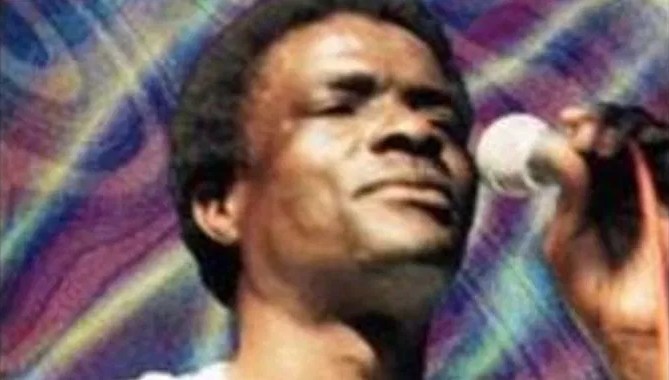
James Chimombe
His music was touching and presented the heart of the Zimbabwean Shona culture. His name was James Chimombe born in 1951 in Enkledoorn 146 kilometres south of Salisbury now Harare. He spent most of his youth in the capital and attended school in Highfield where he first learnt to play the guitar. He died in 1990 aged 39.
Chimombe got his start as a rhythm guitarist with Thomas Mapfumo and Oliver Mutukudzi His career as a vocalist and guitarist included stints with the OK Success Band, the Acid Band, the Ocean City Band and the Huchi Band.
Experts say his music merged Kenyan, South African and Congolese music. He also fused American Country and Western sounds into his tracks
Chimombe’s talent was first discovered when he wrote George Mudiwa for the OK Success Band in the 1970s, but credit for this was given to the whole band rather than the individual. In 1983, with a number of major hits behind him, Chimombe joined , The Ocean City Band as lead vocalist and guitarist. This marriage proved to be the peak of his career as most of his well-known hits such as Cecilia (which was re-recorded by the late South African musician and blind singer, Steve Kekana), Siya Waoneka, Mavanga and Jikinya were recorded with this group. The biggest hit was titled Bindura and he earned his nickname from the title of that song.
Phillip Svosve the only surviving member of the band who was the composer of the brass section told 1ZimLegends that James had a bright future had he not died early.
“He was a good guy. We worked very well in the Ocean City Band from 1983 to 1988.” Svosve said other band members were Nicholas Mugona the bass guitarist, Darum Karango who wrote most of the Jit songs,David Diningo who played the lead guiter,Simangaliso Tom sub-lead guiter, David Moyo drums, Moses Sithole Keyboards, Elliot Bokosha Trumpet and Edson Mubaisa tenor.” We worked as a family as we were age mates.
Svosve said Chimombe wrote the song Kudakwashe which means God’s will- after his wife had given birth to a disabled child. He says Chimombe worked closely with other musicians and had a collaboration with Oliver Mutukudzi on the song Iwe Neni You and me.
Chimombe later formed the Huchi Band He also spent some time with the Red Sounds of Africa. The two albums he recorded with Huchi Band were only released after his death. Chimombe is best known for his hit songs “Jemedza”, “Kudakwashe“, “George Mudiwa” and “Bindura”. Chimombe was heavily influenced by Motown Stars especially Lionel Richie. Chimombe and the OK Success band would during the week sessions sometimes sing and perform Lionel Richie at Club Hide out 99 where he was the resident artist courtesy of Paul Mkondo, owner of the club.
Music Professor Fred Zindi says Chimombe was one of Zimbabwe’s leading musicians who influenced a lot of young artists.” He is regarded as one of the post-independence revolutionaries in the music business. He, together with Thomas Mapfumo, Oliver Mtukudzi, Jonah Sithole, Zexie Manatsa, Jonah Moyo, Lovemore Majaivana, Picket Chiyangwa, Tinei Chikupo and a number of others were responsible for transforming Zimbabwean music from what it was in the colonial era to what it is today” wrote Prof Zindi.
Edmund Mutetwa, another Chimombe enthusiast writes: “James Chimombe deserves more recognition in music. If you listen to his music now it sounds like new.”
Apart from being a professional musician, Chimombe also spent time teaching youngsters to play music through the Ethnomusicology program of the Zimbabwe College of Music in Harare.
He was one of those unusual musicians who made serious investments from his earnings in music. In 1988 he bought a house in Cranborne and another in Highfield.
In the song Jikinya, he showcases his wealth by singing: “Imba yangu yandinayo varume voye, ndakaiwana nekutamba jikinya. Honai ndisiyeyi zvangu nditambe jikinya. Jikinya maworesa” (I purchased my house through dancing jikinya. Leave me alone to dance jikinya).
Chimombe died at Parirenyatwa Hospital in Harare on October 23, 1990. Rumours of his imminent death had begun to spread as early as January, 1990 and Chimombe would often go on radio to announce that he was still alive.
He would say, “Handiende ndisina kuoneka. Kwandinoenda husiku” (I am not going anywhere without saying good bye.Where I am going is filled with darkness); as if he knew he was going to pass on. Soon after his death, his two sons, Kudakwashe the disabled boy and Freddy who had gone blind after a snake bite, also died.